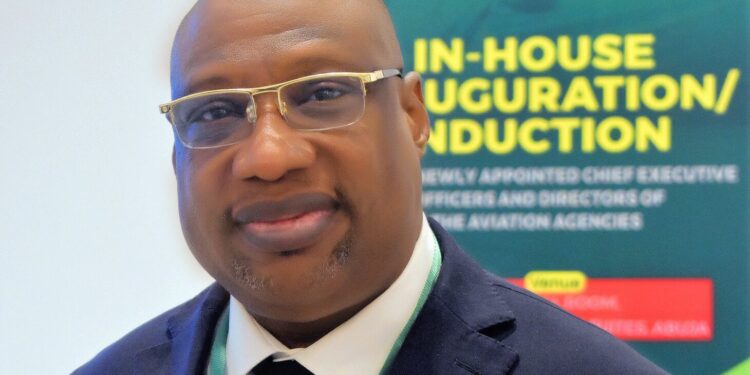The federal government through the Nigeria Airspace Management Agency (NAMA), is proposing an 800% increase in aircraft navigation fees and charges billed to become effective from the beginning of September.
The Managing Director of the Nigeria Airspace Management Agency, Mr. Umar Farouk, disclosed this during the 28th edition of the League of Aviation and Airport Correspondents (LAAC) Conference, held on Friday in Lagos.
According to him, the charges were last reviewed in 2008, and the increase might come into effect by September 1st after consultations with stakeholders. Farouk proposed that en-route and terminal navigation charges should be revised from N2,000 and N6,000 to N18,000 and N104,000 per flight, respectively.
He said, “Additionally, the extension of service hours will be reviewed from N50,000 to N450,000 per extension to enable the agency to recover the cost of diesel and other logistics.”
Also, the Minister of Aviation and Aerospace Development, Mr. Festus Keyamo (SAN), pledged that the federal government will formulate policies aimed at boosting the capacities of local airline operators.
Keyamo also emphasized that the development of Maintenance Repair Organization (MRO) facilities in various parts of the country is a government priority. He noted that advancing MRO facilities will significantly enhance the aviation industry.
He mentioned that investors from Europe, Asia, America, and the Middle East are already in discussions with the Federal Government about investing in MRO facilities.
Keyamo pointed out that some bilateral air services agreements have not benefitted Nigeria, as certain carriers prefer prime Nigerian routes while relegating Nigerian airlines to second-tier airports in their countries.
In his words, “Lufthansa is coming here but we are not going to Frankfurt. Delta, and United are coming from America but we are not going there. South Africa is coming here with no reciprocity”
Problems of the Nigerian aviation industry
Dr. Thomas Ogungbangbe, the Chairman of the conference and Chief Executive Officer of CITA Aviation Fueling Ltd., stated that the Nigerian aviation sector, like many others around the world, had been severely impacted by the macroeconomic environment.
Ogungbangbe highlighted several challenges, including the high cost of fuel, poor access to foreign exchange, weakening currency, and the constant need for maintenance and infrastructure improvement.
However, he also noted that these challenges presented the country with a unique opportunity to innovate, collaborate, and drive the industry forward.
He further stated that investing in new airport projects while neglecting essential infrastructure like roads is counterproductive. Improved road networks facilitate easier access to airports, making air travel a more attractive option for the populace.
Ogungbangbe concluded by emphasizing the need to stimulate economic growth, allocate resources efficiently, encourage public/private partnerships, develop integrated transport plans, and promote Nigeria as a travel destination.












